The leadership of the Natural Science Section changed in the new year. Johannes Wirz handed along his position to Vesna Forštnerič. The new leadership now consists of her and Matthias Rang. This offers a good opportunity for a look at the work and relevance of anthroposophical natural science. Gilda Bartel asked the questions.
Dear Ms. Forštnerič Lesjak, dear Mr. Rang, what did you appreciate about Johannes Wirz’s work?
Vesna Forštnerič: I met Johannes Wirz eleven years ago, when he was not yet the co-leader of the Section. I saw at once that he was a true co-worker of the Natural Science Section and of the Goetheanum as a whole; he always radiated great enthusiasm for the matter at hand each meeting, lecture, and training session, and transmitted it to all present, passing on his thinking from research and anthroposophy with great power. Over the last few years, I have had the honour of getting to know him better and better. I respect him not only as a scientist in the field of biology, genetics, and beekeeping, but also as a human being. He is clear in his thoughts, warm in his heart, and, above all, always a free spirit who reveals his own personality with all its particularities openly and honestly. I think that the younger generations like to see this quality in their somewhat older and more experienced colleagues who have worked in anthroposophy for a lifetime. An honest, lifelong enthusiastic and inspiring personality, in all its colours. He took good care of me when he handed over the leadership and will undoubtedly help us all in the Section work in the future. But I must also emphasise that we have had a good Section collegium for many years and will continue to have one.
Matthias Rang: I always found it impressive how he was able to combine the gaze of a molecular biologist with the probing and open-minded observation of a Goethean researcher, in such a way that, as a listener, the two together often resulted in a high level of inner evidence. The way he was able to combine modern research — which he knows very well and follows closely in its results — with anthroposophy was always very valuable to me. On the merits of a given matter, he often also valued researchers outside anthroposophy as ‹allies›. The large international ‹If gene› conference in 1996 and the major research projects on morphological changes in genetically manipulated plants are just two examples. Johannes is often very direct, so you always know where you stand, and I am very grateful for the last two years in which we have been able to work more closely together. Having felt the desire to resign myself on a number of occasions during my 15 years at the Goetheanum, I also admire the fact that he worked here for more than three decades and was able to leave a strong mark on the Section with a great deal of expertise and drive during this long time.
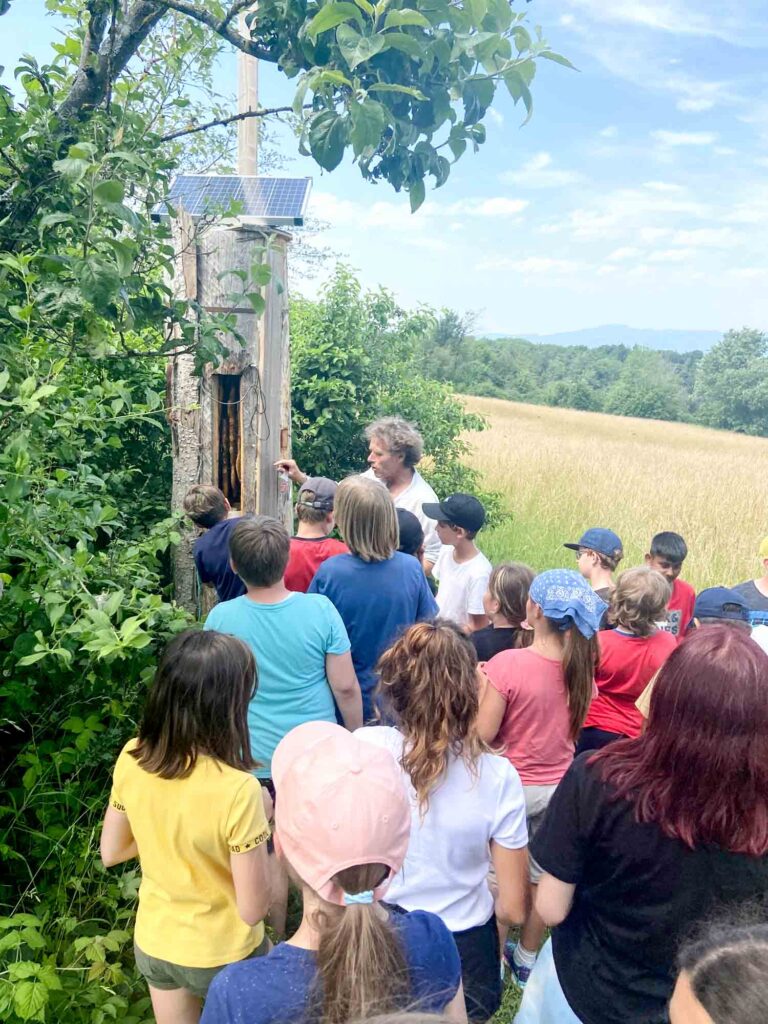
Dear Mr. Wirz, what do you wish for the new leaders of the Section?
Johannes Wirz: First and foremost: full research freedom. This wish sounds less audacious as soon as you understand that the inner, spiritual path does not separate you from the world but connects you ever more strongly with it. Questions concerning the world and thus inspiration for research projects flow to you from this sense of being in touch with your time – that is my experience over many years. Secondly, I wish my two colleagues and friends solid basic funding from the Goetheanum, which unfortunately is not sufficiently secured today. Only on this basis can funds and people be found for concrete research projects in an entrepreneurially responsible manner. And thirdly, I wish them an unconditional openness and social sensitivity that opens the door to anthroposophical Goethean work for younger people. To do this, they must be willing to acknowledge that their pupils and students can become better than they are. Allen Ginsberg once said: «If the student is not better than the teacher, then the teacher is a failure.»
Will there be a thematic change of focus with the change of leadership?
V.F.: Certainly, the topics and the way we do things will change. Everyone brings their priority, but also their personality. I am trained as a pharmacist and farmer and my Goethean research is mainly in this direction. That’s why it’s good that we become two co-leaders again. The field of physics, for example, is not really my field (laughs). For me, community building is also important. In Slovenia, I tried to set up the first pioneering work with community building in the field of Goetheanism, anthroposophical pharmacy, and medicine, and continue to do so. This is long-term work requiring patience and no expectation of quick results – work that is perhaps somewhat lacking in natural science circles here and around the world. It seems to me that the connection and respectful cooperation between us natural scientists is important in order to achieve a stronger presence and creativity in the future. As a Slovenian, I bring other qualities, but also limitations. That’s why I’m glad that Matthias Rang will carry the section forward together with me. Because I notice that where I am weak, he is really strong.
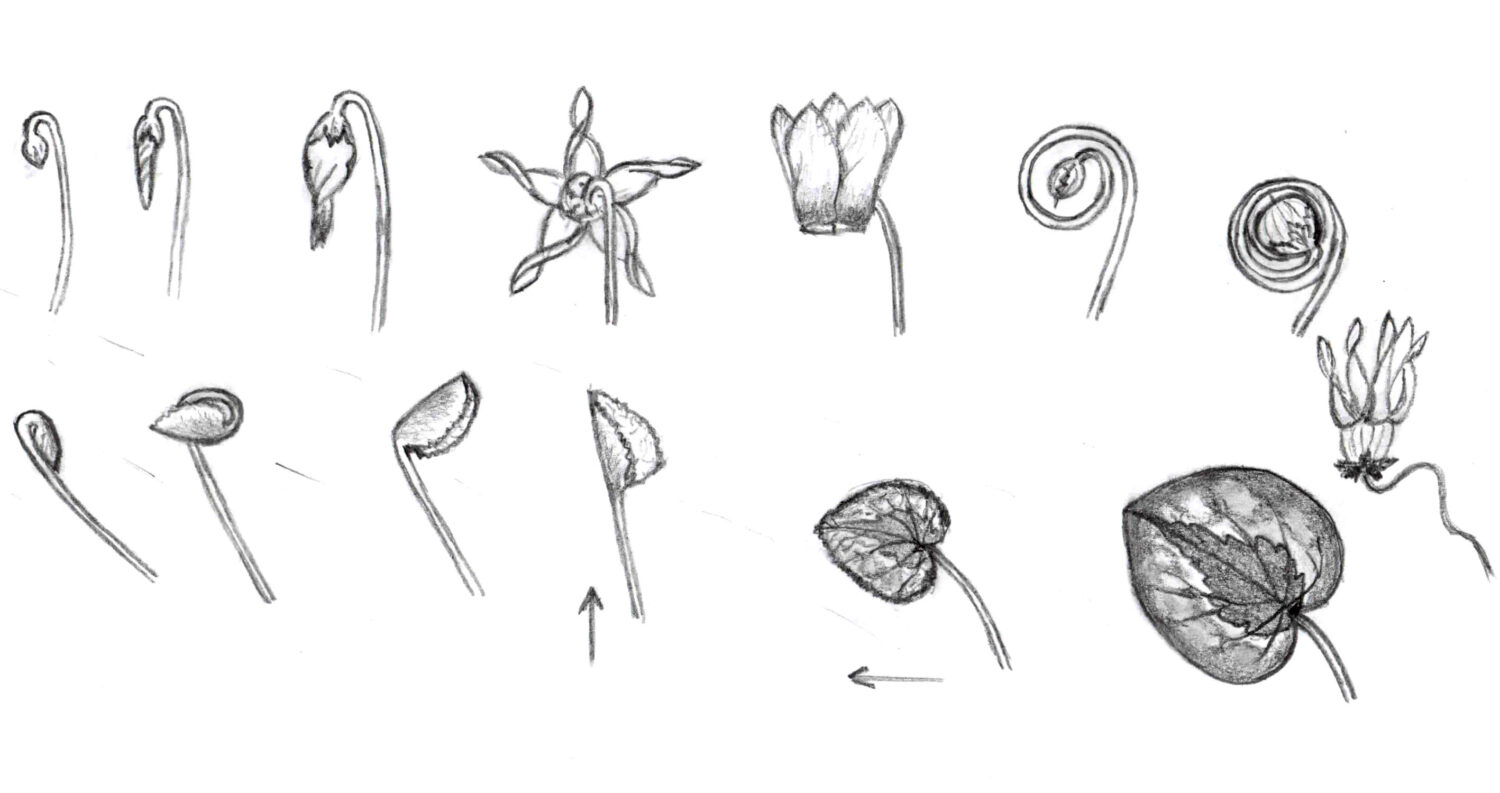
Sketch of the research project of the Cyclamen genus by Vesna Forštnerič Lesjak
M.R.: We will shut ourselves away at the beginning of February with all the Section staff and with Johannes Wirz and Johannes Kühl for a two-day retreat in which we will look back at the last few years, the challenges ahead, and our future direction. In the big picture, we will certainly strive for continuity. Thus, since the founding of the Section, its core task has been to extend science into the realm of the living and etheric, and we see today how important this is. At the Goetheanum we have also been striving for closer collaboration among the Sections for some years. Since Vesna, as a pharmacist, has already worked with the Medical Section on various occasions and, as a farmer, also has a connection to the Agricultural Section, we can hopefully intensify our cooperation here in the future and in this way broaden our work a little more.
What are the research topics of the next few years that should or must be addressed by the natural sciences?
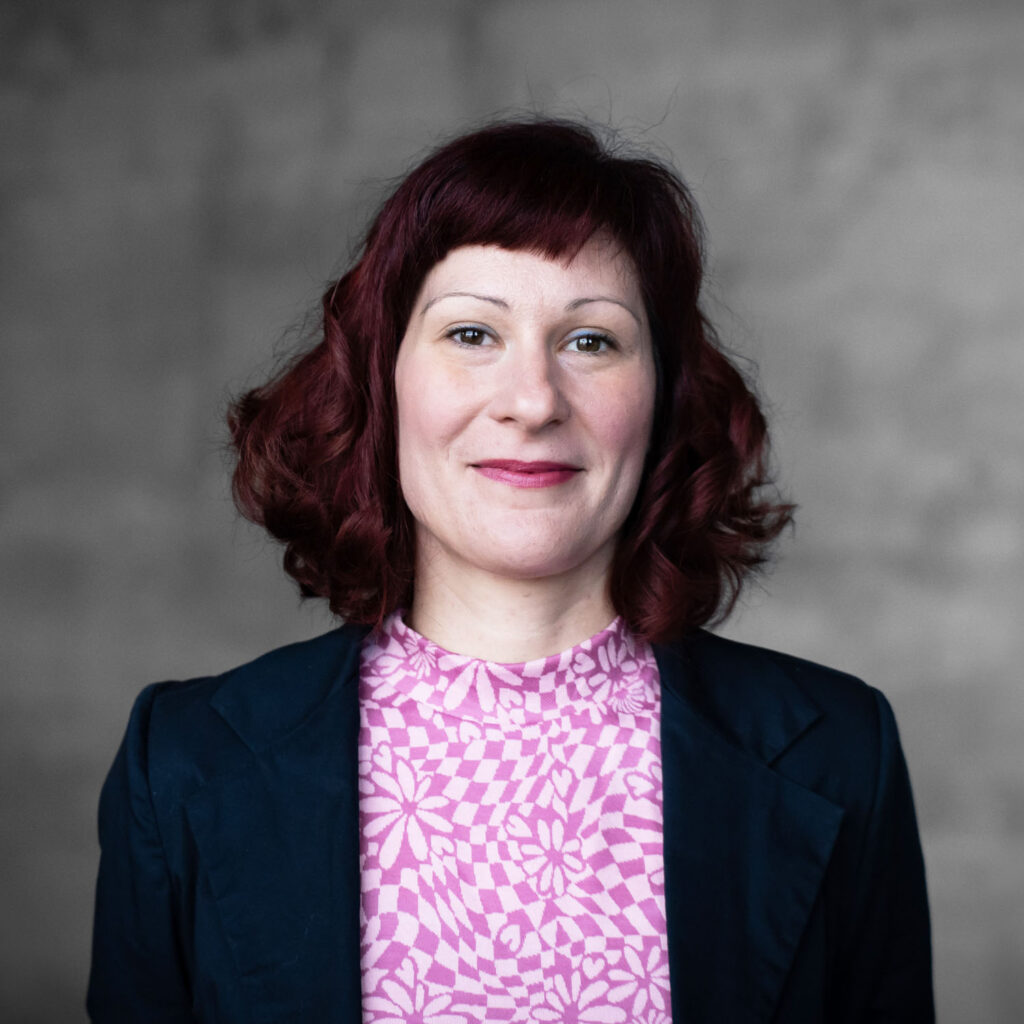
M.R.: Everyone knows that the earth has a geosphere, a hydrosphere, and an atmosphere, but in our everyday lives we are less aware of the hydrosphere and especially the atmosphere. However, not many people are aware that beyond this the earth also has a thermosphere, but it is here that the climate problems are particularly evident. I think we have a task here as a Section that we are not yet fully taking on. In a small pilot project, we have tried to experimentally characterise the earth’s thermosphere; more research here would definitely be desirable.
V.F.: Research should be undertaken on many topics that are important for the future, such as the climate, agriculture or genetics. Personally, I also have a number of other research topics. What I am most interested in is the development of medical remedies and understanding the effect of such remedies from a Goethean perspective. The picture-forming methods are also a great preoccupation of mine. They urgently need a new approach in order to develop their full potential. Above all, we need Goethean training of the younger generation worldwide, which is increasingly trained in materialistic science. As a result, they carry this kind of scientific impulse into life and often feel empty inside and mentally parched. They should not separate themselves from science but find a new approach to it. An approach that does not rob life forces but gives them as abundantly as possible.
To what extent is the work of anthroposophical natural science important for the future of human beings? What do you see as its contribution?
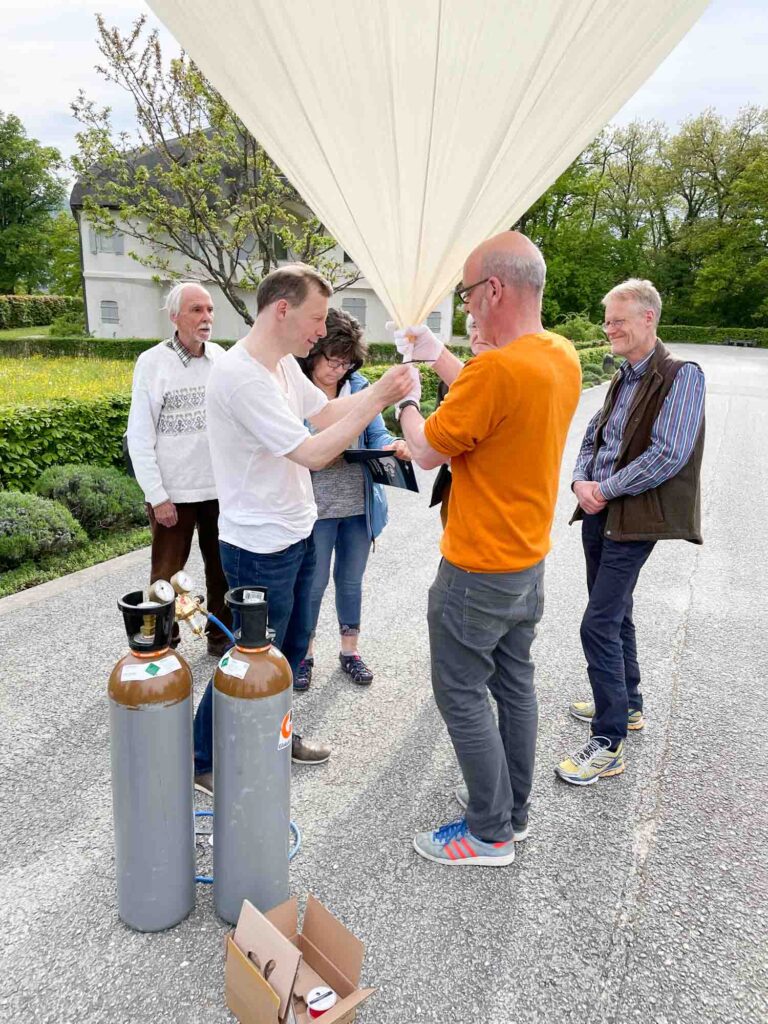
M.R.: We just had the topic of the etheric and how strongly the crises in our time are connected with the negation of this realm. It does us little good to talk about it to a greater extent, but we need research projects that allow us to make the etheric more tangible as a transitional realm between the physical and the spiritual. I think this is very significant, and it is in this transitional realm that the task of our Section lies. Admittedly, this is a big, perhaps distant prospect whose realisation we cannot achieve alone, but we see this research as an investment, a contribution to the future of humanity on earth.
V.F.: Everyone who gets to know, loves, and applies the Goethean method well in research is convinced that this impulse is not only significant for humanity but also decisive for the future. The way we deal with nature and phenomena in science, the economy, and social life today leads to a complete degeneration of human souls and nature. We urgently need to learn a new way of dealing with the sensory world. This approach must also include, explore, and understand soul and spiritual background factors so that the human being does not stand in life divided between the physical and the soul and spirit, and behave as if at war with nature and with other beings. The Goethean method is not only a research method, it is a lifestyle, a different approach to the sensory world and fellow human beings. Its potential has so far only developed in a nascent way, despite many efforts, because it needs time, dedication, and above all to be recognised, also within anthroposophical circles.
Should every human being also be a scientist, as a counterpart to ‹every human being is an artist›?
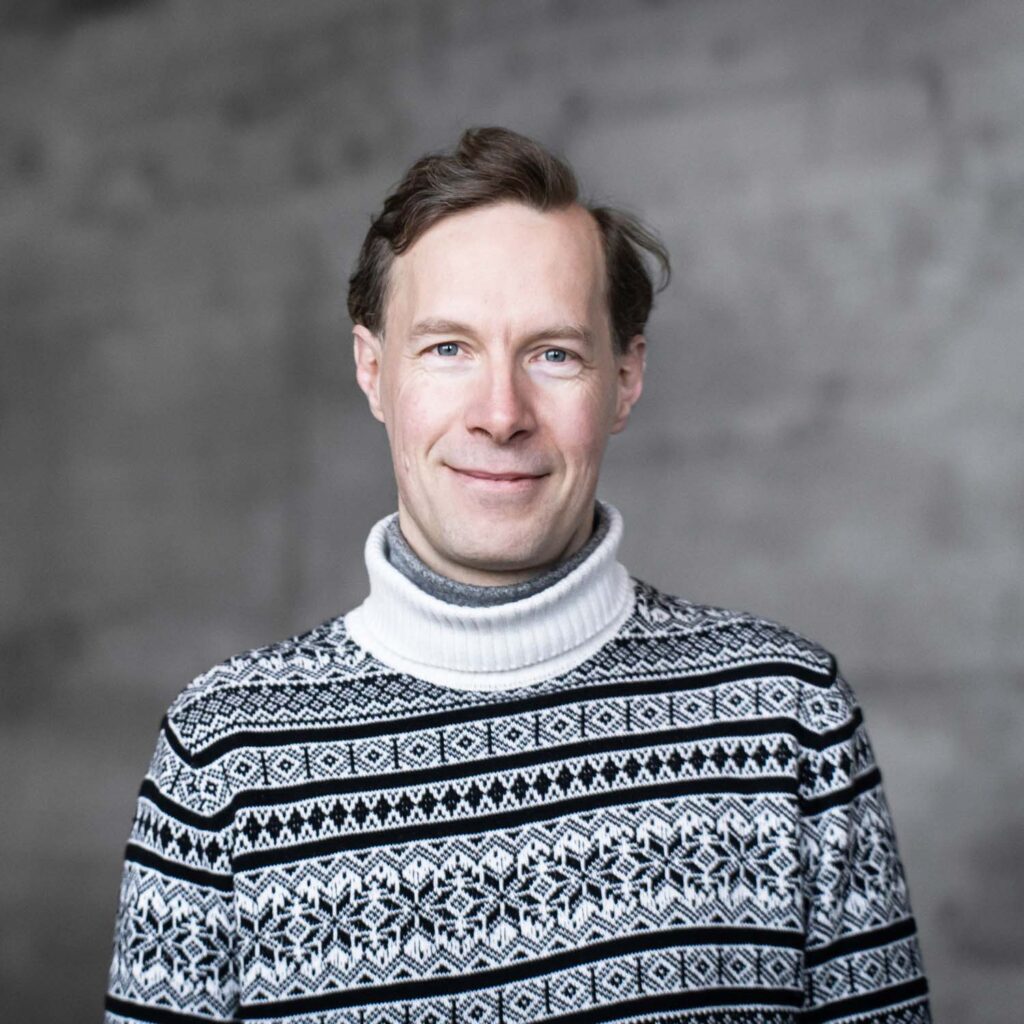
V.F.: I can answer that in a flash: Yes! Art and nature are inseparable in any case. We as humans are also a part of nature, we are an artistic work of nature. Those who love themselves and life love nature. And every love also requires a thorough understanding of the beloved object/subject. We are all invited to understand nature better. And nature is always all around us. We can learn something new from it every moment if we so wish. Being a scientist is first of all a term for those trained in this field. But as human beings, we all have senses to approach more closely to nature and thinking that can be trained to the extent that nature is also understood inwardly. We ourselves establish boundaries between external nature and the inner human being. I think Goethe’s words are wonderful: «I look for the idea in the experience because nature proceeds according to ideas.»
M.R.: As humans, we are domiciled in two worlds. And most spiritually interested people know that I have to give love and attention to the realm of the spirit so that I can remain at home in it and remain fully human. The same is true for nature, and natural science means that I am interested in it, its phenomena and manifestations, that I take an interest in its destiny. Our senses connect us to nature, and science begins by becoming aware of these senses and how they connect us to the world. It is amazing how much we as humans are gifted spiritually by phenomena in nature once we have become aware of them.
How can natural science help people to become more grounded again?
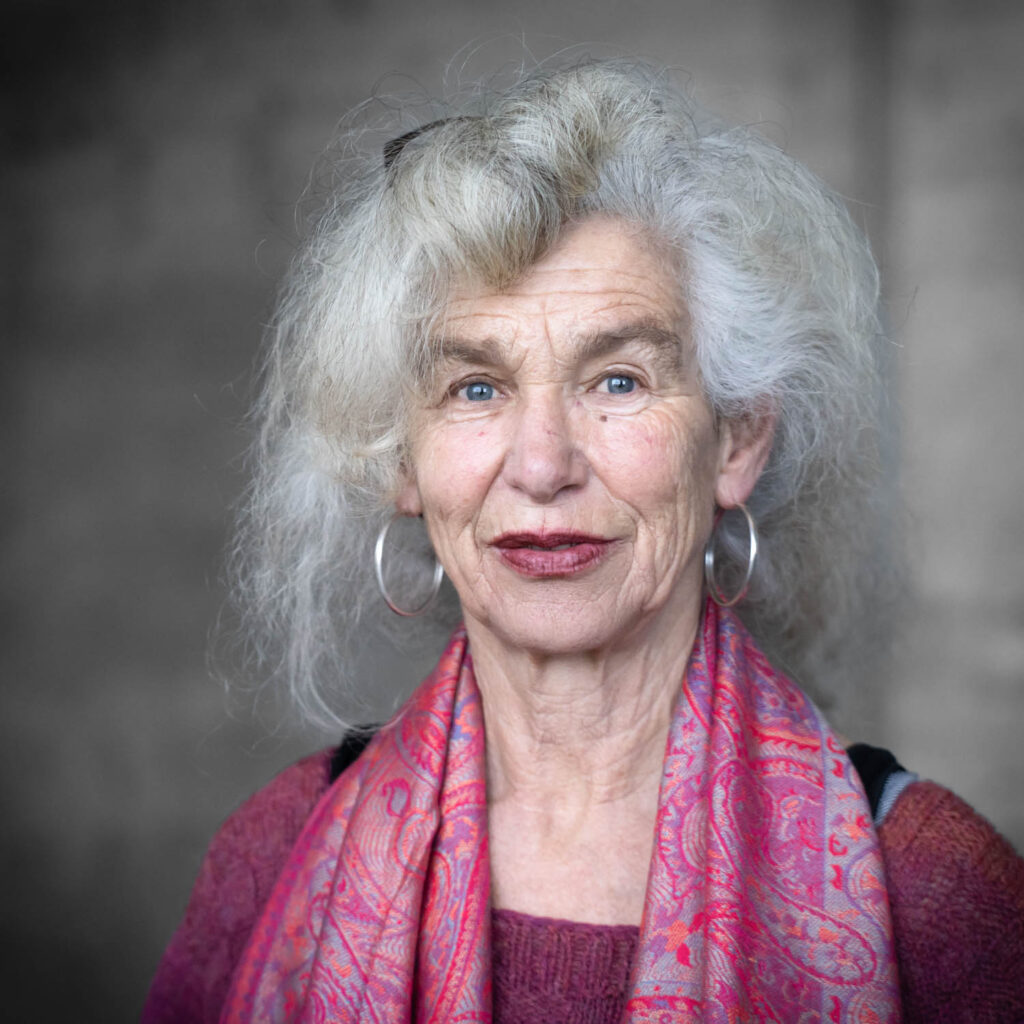
V.F.: A very good and important question. This is, among other things, the goal of natural science. Goethean anthroposophical natural science demands clear, creative, and imaginatively trained thinking, based on clearly grasped phenomena in the world. This brings the first grounding and is the best protection against error. If I develop the right thoughts that come from a whole picture, from an understanding of the connections, then in the second step I can also find and produce the right and practical application of this acquired understanding creatively, well, and correctly. In this way, the natural scientist swings from the active will in research to living and holistic thinking, back to creative action. A path from earth to heaven and back to earth.
Title image Rear left: Johannes Wirz, Torsten Arncken, Matthias Rang, Johannes Kühl. Front left: Vesna Forštnerič Lesjak, Ruth Richter, Mara Born. Photo: Xue Li.
All portraits by Xue Li

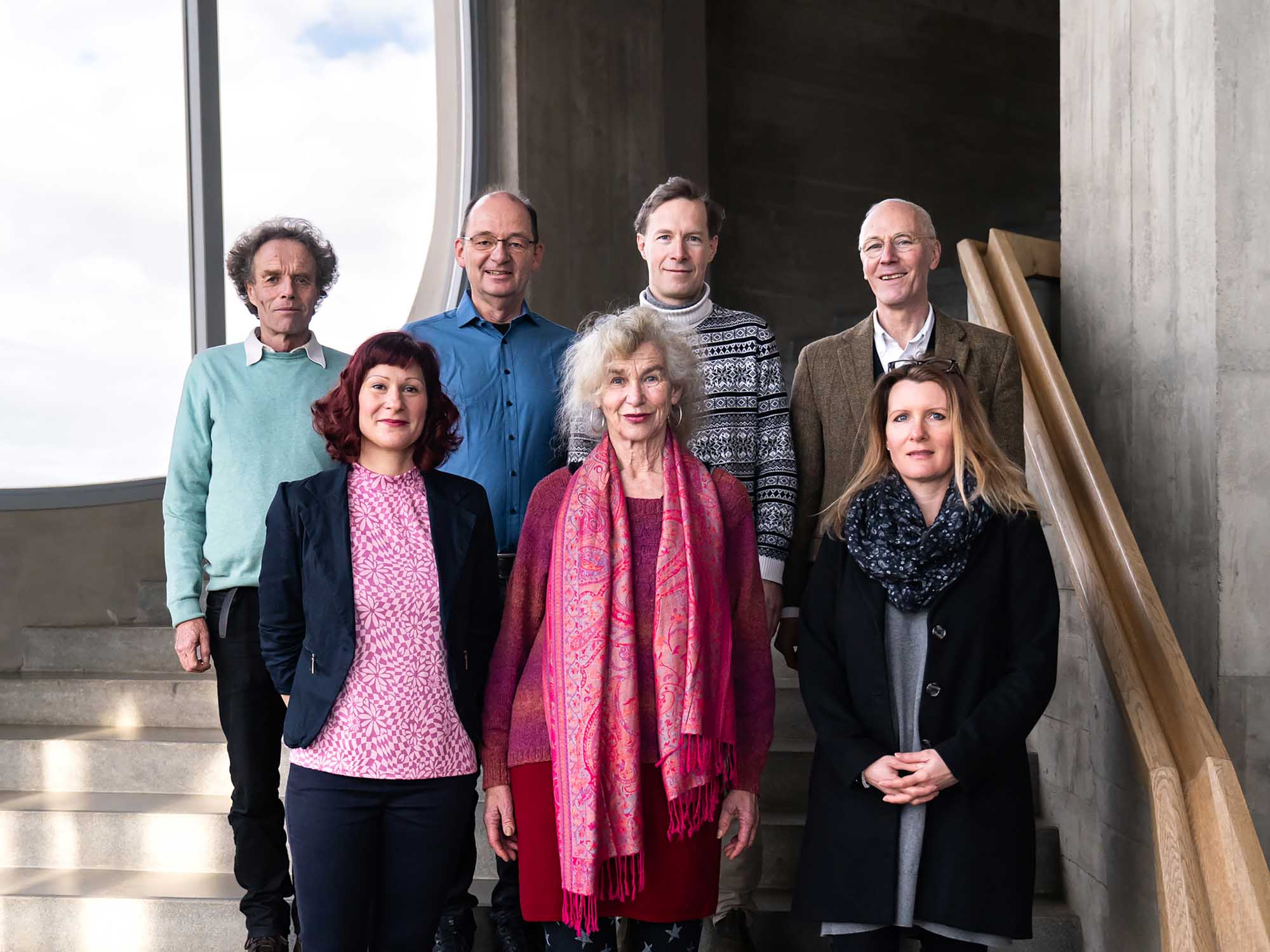

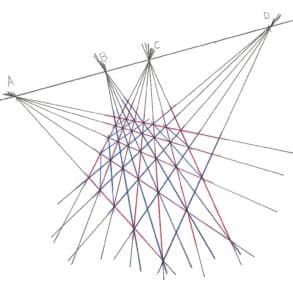
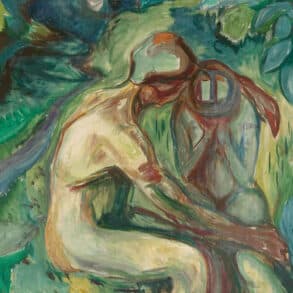
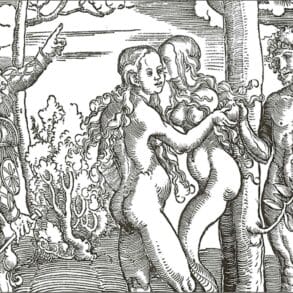
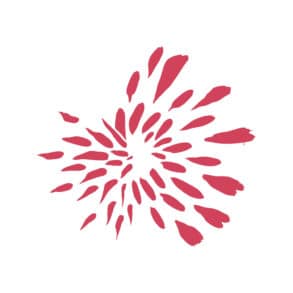
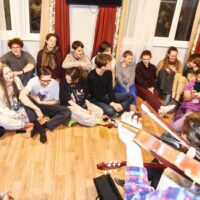
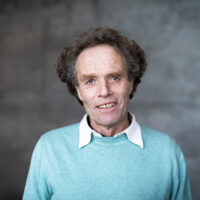

From Earth to Heaven and Back
q: Which Earth and which heaven? Why thinking being separate? Even after 2000 years? “sicut in coelo, et in terra. Have we become so deaf that our inner ears are closed also, our minds give a decrepit translation? Surely it has created hell on earth, can’t we see anymore either?
Pater noster, qui es in coelis;
sanctificetur nomen tuum;
Adveniat regnum tuum;
fiat voluntas tua;
sicut in coelo, et in terra.
Panem nostrum cotidiamum da nobis hodie:
Et dimitte nobis debitoribus nostris:
et ne nos inducas in tentatioem:
sed libera nos a malo.
Quia tuum est regnum, et potestas, et Gloria,
in saecula. Amen.
Same in Aramaic;
In Heaven (Bashamayam) Be (Haya) As(kawa) In Earth (Baahrataza) Done (Isha)
Read above sentence backwards Right to Left as in hebrew.
with Love to you
from Gepke
Are there Natural Science Section meetings in America? I live in New England. Perhaps someone can look me up, and we can discuss high energy physics.
Joel, I don’t know about a Natural Science section in North America, but you might connect with the Nature Institute!
In response to the question about about the NS Section is North America, please see this link:
https://www.naturalsciencesection.org/conf2023/